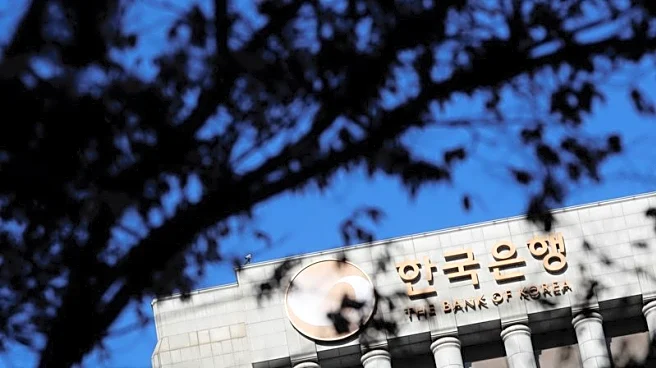By Cynthia Kim and Jihoon Lee
SEOUL (Reuters) - South Korea's central bank kept policy interest rates unchanged on Thursday as a resurgence in home prices and a declining currency against the dollar reduced
the scope for further easing.
The Bank of Korea's seven-member monetary policy board voted to keep its benchmark interest rate unchanged at 2.50%, an outcome expected by 33 of 35 economists polled by Reuters.
The median expectation is now for one more cut in November and then a prolonged pause, as analysts expect policymakers to put more emphasis on managing risks related to financial stability amid an overheating housing market and uncertainty over a U.S. trade deal.
South Korean policymakers have been taking a tactical approach to support an economy hit by former President Yoon Suk Yeol's martial law decree and trade uncertainties by cutting interest rates a cumulative 100 basis points since October 2024.
Yet the potential for renewed home price upswings is problematic for any further easing, particularly as the won faces downward pressure against the dollar, said Kim Jin Woo, a Citigroup economist based in Seoul.
"Structurally resilient Seoul apartment price rally, depreciation risks on the won from the Korea-U.S. $350 billion investment fund, and stronger-than-expected memory chip upcycle" make it difficult for the current easing cycle to continue, Kim said, who expects the BOK to next cut rates in November 2026.
The Lee Jae Myung government announced its third property market curbs in just four months this month as the price-to-income ratio of an apartment in Seoul exceeded both London and Sydney.
Governor Rhee Chang-yong will hold a press conference at 0210 GMT, which will be livestreamed via YouTube.
(Reporting by Cynthia Kim; Editing by Sam Holmes)









